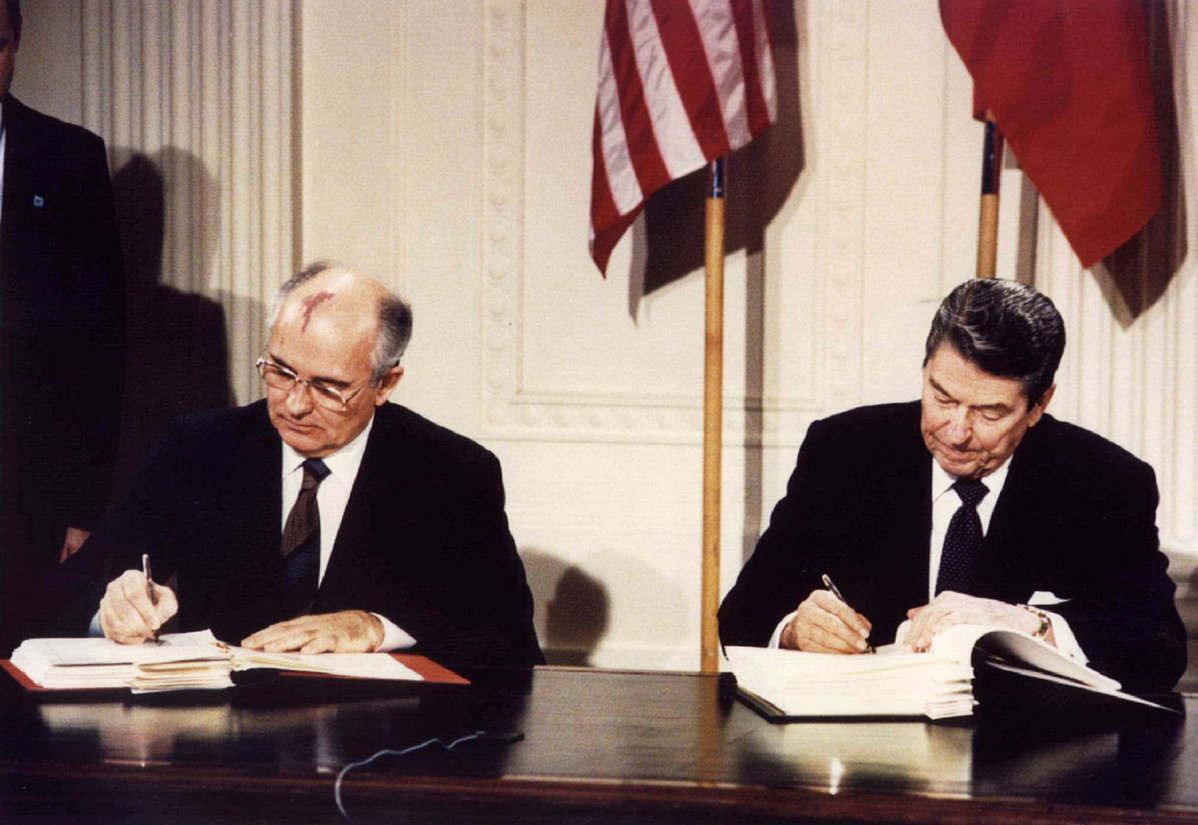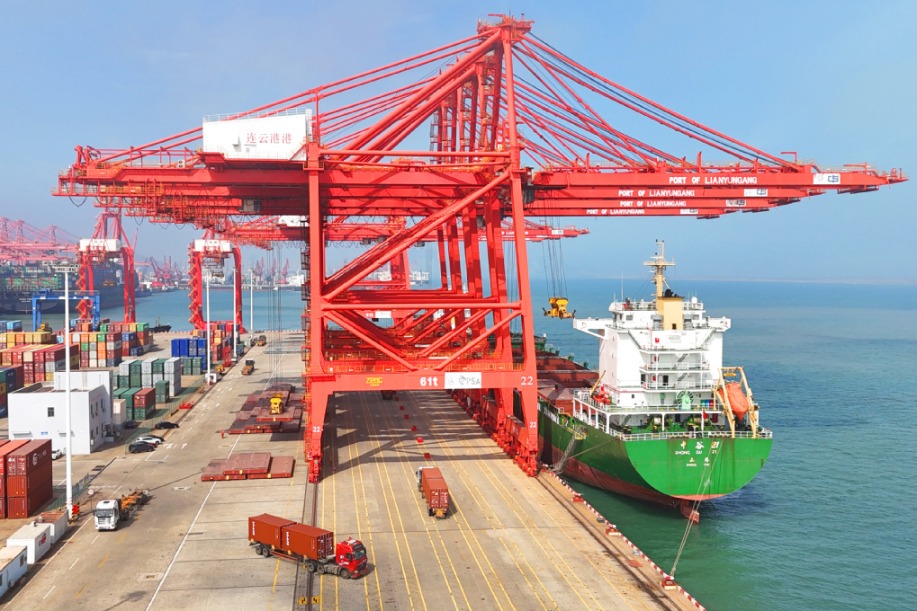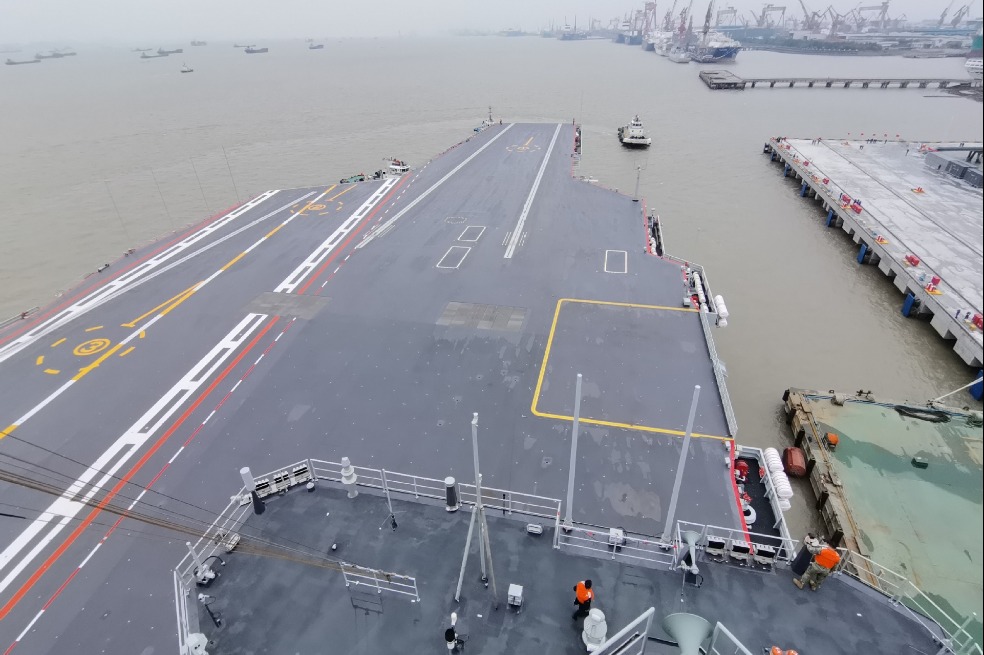End of INF Treaty won't change trend of peace
By Pan Yixuan | China Daily | Updated: 2019-03-12 07:10

Editor's Note: On March 4, Russia officially suspended the Intermediate-Range Nuclear Forces (INF) Treaty, signed between Washington and Moscow in 1987 to eliminate the two sides' land-based ballistic missiles, cruise missiles and missile launchers in the short range (500-1,000 kilometers) and intermediate range (1,000-5,500 km), in response to the United States' announcement on Feb 2 that it would quit the treaty. Three experts share their views on the issue with China Daily's Pan Yixuan. Excerpts follow:
INF Treaty is all but dead

That Russian President Vladimir Putin signed an ordinance to suspend the INF Treaty shows Moscow is certain that Washington will eventually quit the treaty following its announcement to do so on Feb 2.
Even when it was in force during the past three decades, the INF Treaty could not stop the US and Russia from developing sea-based and air-to-surface missiles-nor could it curb the global arms race. Perhaps both countries saw it as an impediment to developing new weapons and military equipment to strengthen their respective armed forces. Therefore, the nullification of the INF Treaty seems inevitable.
Of late, the tensions over a global arms race have increased but are not as severe as they were during the Cold War, because the nature of the confrontation between the two military superpowers has changed and the international community today overwhelmingly supports peace.
Europe could persuade Russia, US to hold talks

European countries are especially worried over the imminent scrapping of the INF Treaty because, once it is scrapped, Washington and Russia won't be under any compulsion to not develop short-and intermediate-range ballistic and cruise missiles, which in turn could compromise the security of European nations.
However, the suspension of the INF Treaty by Moscow will impose more pressure on European countries to persuade the US to hold security talks with Russia, so as to prevent more strategic standoffs between the two military superpowers.
Unfortunately, a new global arms-control regime cannot be established until the US-Russia dispute is settled.
The arms race and development of weapons did not stop even when the INF Treaty was in force-nor did the development of missiles beyond the scope of the INF Treaty. Many believe the US and Russia were using the INF Treaty to accuse each other of violating the arms-control regime instead of refraining from developing new arms and equipment.
It seems the INF Treaty is all but defunct, but that does not necessarily mean regional tensions will spiral out of control, because the overwhelming global trend is of peace and development rather than confrontations and conflicts despite the US' military strategy of trying to prevent other countries from modernizing their militaries while strengthening its armed forces.
US can't force others into new arms-control pact

Thanks to its aggressive strategy of strengthening and expanding its military, the US seeks a new arms-control pact which would include not only Russia but also countries such as China and India, which are capable of developing short-and intermediate-range missiles. Russia, on the other hand, needs to make up for its shortage of conventional weapons.
But since the two signatories to the INF Treaty are not seeking a military confrontation but looking to boost their military strength, they could end up holding talks to discuss whether Russia would allow the US to inspect its 9M729 ground-launched cruise missile systems, which the US says violates the INF Treaty, in order to work out a new treaty. Or, they could agree to a multilateral arms-control treaty which would include more countries.
However, a multilateral arms control treaty would be hard to realize. For example, the US cannot urge China to join a new arms-control treaty mainly for three reasons: Washington has been taking frequent provocative actions in the South China Sea; China has developed intermediate-range missiles to safeguard its national security; and there is a wide gap between the sea and air forces of China and the US. Why should any country compromise its legitimate national security just to join an arms-control treaty, especially because the US will never agree to reduce its weapons and military equipment to give a security guarantee to another country?
























